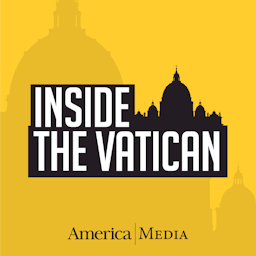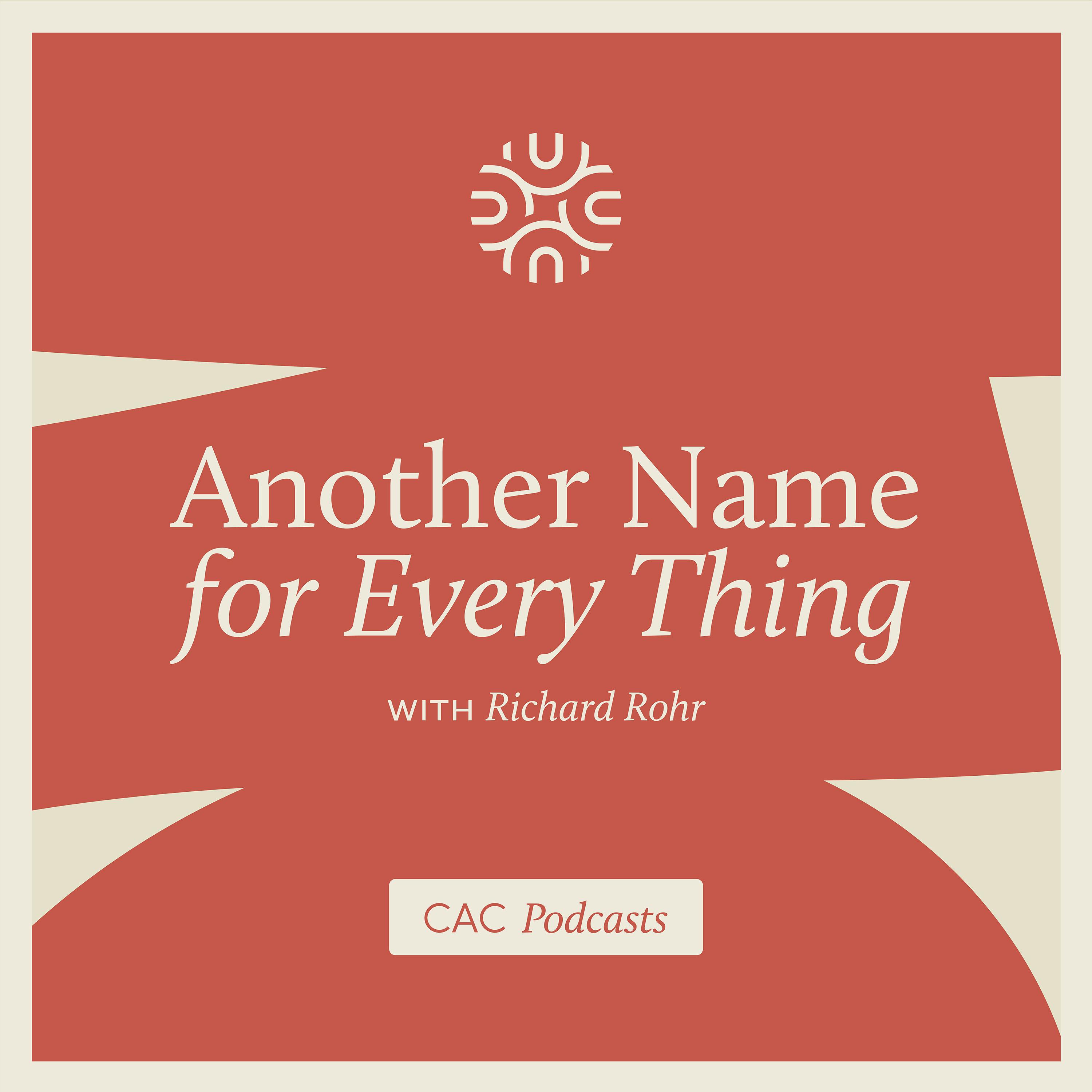
SOLACE: Soul + Grief
This podcast is sponsored by SOULPLUSGRACE serving the San José/Santa Cruz area, offering grief support and grief journeying with spirituality. I hope to help you travel through grief with God at your side.
"I am a trained Spiritual Director for those who seek to complete the 19th Annotation of St. Igantius’ spiritual exercises OR seek spiritual direction while grieving. I have also worked as a hospital/cemetery chaplain and grief doula. I believe all paths lead to God and that all traditions are due respect and honour. I take my sacred inspiration from all of my patients and companions–past, present and future; the Dalai Lama, James Tissot, St. John of the Cross, the Buddha, Saint Teresa of Ávila, and, of course, Íñigo who became known as St. Ignatius. I utilize art, poetry, music, aromatherapy, yoga, lectio divina, prayer and meditation in my self-work and work with others. I believe in creating a sacred space for listening; even in the most incongruous of surroundings."
BACKGROUND
- Jesuit Retreat Center, Los Altos, CA -- Pierre Favre Program, 3 year training to give the Spiritual Exercises of Saint Ignatius
- Centro de Espiritualidad de Loyola, Spain -- The Spiritual Exercises of St Ignatius of Loyola -- 30 Day Silent Retreat
- Center for Loss & Life Transition – Comprehensive Bereavement Skills Training (30 hrs) Ft. Collins, CO
- California State University Institute for Palliative Care--Palliative Care Chaplaincy Specialty Cert. (90 hrs)
- Sequoia Hospital, Redwood City, CA -- Clinical Pastoral Education
- 19th Annotation with Fumiaki Tosu, San Jose, CA, Spiritual Exercises of St. Ignatius
- Santa Clara University, Santa Clara, CA M.A. – Pastoral Ministries
CONTACT ME: candeelucas@soulplusgrace.com with questions to be answered in future episodes.
SOLACE: Soul + Grief
What Separation Teaches About Love
Use Left/Right to seek, Home/End to jump to start or end. Hold shift to jump forward or backward.
We trace Rachel’s caregiving through COVID barriers, hospital chaos, and a rare moment of blessing from her father, who tried to dance in a neck brace on the day he came home. Fear, advocacy, and dignity shape a story that turns separation into a deeper kind of love.
• Rachel’s layered losses and why she chose to share
• COVID-era separation and window visits with her father
• the work of advocacy • comfort versus intervention that reframed caregiving
Please support us by subscribing on Apple Podcasts, Amazon Music, or Spotify. If you have questions about spiritual direction while grieving, or grief support or grief groups in your community, my contact information is in the show notes.
SPIRITUAL DIRECTION WHILE GRIEVING IS AVAILABLE
Art: https://www.etsy.com/shop/vasonaArts?ref=seller-platform-mcnav
and https://fineartamerica.com/profiles/candee-lucas
https://www.amazon.com/dp/B0F2SFH4Z6
Music and sound effects today by: via Pixabay
Welcome to Solace: Soul + Grief. I'm glad you're here. My name is Candee Lucas. I'm a grief chaplain, a spiritual director, and your podcast host. I was trained by the Jesuits at Santa Clara University and the Jesuit Retreat Center in Los Altos, California. When we started this ministry four years ago, I had hoped to create a library of support for those who are in fresh grief, for those who are farther along on their grief journey, and for those who have fully integrated the loss of their loved one into their lives. Today, the wife of my number one son, Dax, whose name is Rachel, who, beginning the year of COVID, suffered a series of losses. Those losses, one upon the other, had a profound effect on her life. And she agreed to share some of those stories with us. So today she shares the lesson she's learned in the grief process; on her grief journey, the importance of love and healing, and always the presence of those we have lost.
Rachel:As things were going along, one of my biggest fears was that my father would uh would uh get COVID or succumb to COVID. And I knew my my father at the time was 86 years old with end-stage kidney failure, but he was doing very well with a regular dialysis, which he continued to do just his primary motivation being that he wanted to be able to spend time with his grandchildren. So he went through painful procedures, not feeling well, always just to be able to spend more time with the grandkids, who he used to call his happiness pills. You know, during COVID it got difficult because he had he had just recently moved into a new senior living facility and they had a lot of different lockdown procedures. And I can remember in particular this one day, actually, I think it was his birthday, we went to visit him. The idea that we had was that we would pull up in our car, keep our windows closed, and have him and talk with him over the phone, just really only being separated by the uh glass of the of the car window. For some reason, and they had, and there were some other residents who were out outside, so it seemed like that was something that could be done, but for some reason they came and got him and said he couldn't be out there with us, and so had to go back in, and they and he reluctantly and almost I think in some ways they had to kind of drag him back into the facility, which was feet and yards and away where we couldn't see him anymore.
Rachel:We continued our conversation on the phone, and when we left, I just turned around and and cried the whole way home. So the separation with my dad was already starting, a physical separation from my dad had already started with COVID and continue would only continue to grow. And throughout COVID, with the fears that I had about my dad, someone had told me that, you know, kind of the more we fear, the fear that we put out into the world, sometimes that we we learn the fear that we're thinking we're most afraid of will happen, and we can learn how we sort of how we are able to handle that. And so, of course, shortly there, I guess, shortly thereafter, my father fell, and he called me from the floor where he had fallen in his room, and I reminded him not to move, and he knew that he didn't want to move. He had hit his head and was bleeding, but he sounded at the time. I think my dad always came from the school of he was protecting me as my father. So he was trying to protect me even in those moments. So he was trying to sound like he felt was doing okay. I reminded him again not to move, and that we were, you know, we've been in touch with 911, and that I was gonna get there and and follow the ambulance. Just as I arrived, they were bringing my dad out on on the gurney, and he saw me, and I think, or maybe right before that, he was he started crying. And I never really saw my dad cry before then. He was born in 1934 and really came out of that school of, you know, sort of men don't cry, and you don't, you certainly wouldn't cry in front of your children. I guess it wasn't entirely he would sometimes, I guess, cry in private, but certainly not in front of his kids. He never wanted us to see him as anything more than the strong rock that he had always been.
Rachel:But in this moment, he was crying because he was he was afraid, very much afraid, and he kept sharing with me how afraid he was as they were putting him into the ambulance. And I stood by trying to hold his hand and letting him know that you know we were gonna get him taken care of, and it was okay to be afraid. And it was really hard because I knew, just as I know with my own kids, I had to be the one who wasn't showing my fear because my dad's fear was enough, and I didn't want him to feel that he needed to protect me anymore in that moment. So we got him to the ho he was taken to the hospital. Once he was situated, I went and I was able to find him, and and the the terrible thing about him having to go to the hospital was it was the only times when I was able to really spend time with him in COVID because I was allowed to actually go in and see him. So there was this really surreal element of feeling heartbroken that he was scared and in pain and anything less than than feeling healthy and his well-being was everything to me as his caretaker. But at the same time, there was sort of um contentment in knowing that I would have this time to actually share with him. I spent the whole day by his side. And my dad's a really interesting man. I would, I've said and still believe to my core that he was the smartest person I ever knew. And I joked because at that moment he was the only person I know who would quote Winston Churchill at all, yet alone, let alone while they were um in a pretty serious state. It turns out that after we got the results back from his different scans, he had actually broken his neck. When I heard that that was, they came in and and collared him and let him know what the um what the scans had showed. And in my head, all I kept thinking was, I didn't think people survived a broken neck. And my dad and I have just been sitting here, or him laying in bed, and I've been sitting here and we've been talking and and and being with one another in the ways that we knew how. Really being able to sort of talk about family. He and I have been talking for a long time about what happened death and what happens to the people we love in preparation because we knew obviously he wasn't gonna live forever. And he had to be transferred to a different hospital that had a different level of trauma care. So once again, they had to put him back in a medical transport. And I went followed them to the next hospital. And actually, this was interesting because of the hospitals being so overrun with COVID, he sort of got neglected. He was not neglected exactly, but just sort of left in a room, and it was almost like he was forgotten about. At that point, he was very hungry, and we were joking about how I could run and sneak him in a pizza. And we try, I kept trying to find somebody. I was always his advocate, and I was trying to find somebody to help us because we were sort of put into this one space. And I don't think it was the space that they would typically use. But once again, with sort of COVID, you know, really filling up the hospitals, you know, the patients, there was really not a plan for how to logistically handle the overflow.
Rachel:And this was all happening at the height of COVID. At some point, you know, I'd been in touch with my brothers and sisters to share what had happened. When I was by myself, I was able to share with them how scared my father had been and sort of what that was like. They were all um heartbroken and just like me, really hadn't seen my father express that level of or express any fear, frankly, without share that with us in any way. And and so that was sort of what was happening there. And then he had to be transferred, I guess. So we were visiting with him in the hospital, and they wanted us to help them or work with the social worker to find him a rehab center to step down to where they would have dialysis on site because of his needs for dialysis, obviously. But also, again, there were so many pressures. So COVID was always looming in the background, and and they just didn't have the time to keep, you know, they needed the beds and couldn't keep them. And then so finding a rehab center, which was also challenging because people who had who had survived COVID and had really bad bouts were also transferred to rehab units. So they were quite quite full, and there were only two facilities. Did have a dialysis on site. We were able to get him into one. And again, that was really hard.
Rachel:The only way that we could see him was they had, if I called ahead of time and worked with him, we could arrange a time so that I would often bring the kids and I would go and we would stand, they would bring him to a place where there was a lot of windows, and we would sort of stand in the bushes by the windowed glass, and my father would be on the other side in a wheelchair, and he'd be on his phone, and we'd be in our phone, and that was the way that we were able to talk. It must have been right around, I think it was in early November. It was right around Veterans Day and my oldest son's birthday, who's also my father's first grandchild. We had gone to see him and we were talking with him about his own very short-lived and very interesting story of his time in the Navy. So the kids were sort of asking him about that. And at some point during the conversation, and at this point I don't quite remember what the context was, but my father said something that I'll I'll never forget because it really, it really made me feel good, especially as his caretaker. But he said something to me about you're somehow you're still my 14-year-old baby girl, and at the same time a 40-year-old executive taking care of me. And really that had been the case throughout, you know, all this time while he was having to get dialysis on medical transport. At one point, he shared with me that people weren't wearing their masks, and the next thing he knew, I was calling the mayor of Tucson to figure out what was happening and why they weren't providing masks on a medical transport provided by the city. So that's where that executive came in. But there was something in that moment that in or in that comment that he said that, you know, I think as a daughter and a daddy's girl to some degree, you know, sort of knowing that you're always that baby girl, but at the same time, knowing that he respected and was proud of who I'd become as an adult and somebody who could come and help take care of him. And and I think is really, I think a lot, all of what anybody really wants to hear from their parents is that they were sort of loved and and will always be seen as their baby, but at the same time, are proud the parent is proud of them for who they become. And then it there was a lot that happened during this time. It was, it was very complicated. There were a lot of very hard moments. He had been moved into the oh, and at the rehab, that's what it was. They unfortunately the rehab centers were not great facilities always. And they were not doing his dialysis very well or making sure he was hydrated. And my father got severely dehydrated. We didn't know that's what it was at the time, but they did call me to tell me he was unconscious at the hospital. So I went there. You know, when we had to, every time he was at the hospital, I had to talk with the doctors about what his codes should be and what the orders should be and how I wanted them changed. And given that he was older now and falling, I had a doctor who came in and said, you know, when people start falling, you really need to think about what's going to happen. And I got to learn a lot about different revival methods and what that would, what potential impacts that could cause. And, you know, I had to be, I was always balancing with my father the need to make sure that he was comfortable and thriving, along with what the side effects of any kind of intervention could be, which could be harmful and and put him at other risks.
Rachel:So it was, it was always kind of a balancing act, and that was true of his dialysis and all kinds of things. But once they had realized in the hospital that he it was just a matter of dehydration, which I don't always think that people recognize the debilitating effects of dehydration, particularly in older folks, and what that can look like. At this point, then they did release him back to the rehab center. Again, they didn't have the space for him, so the minute he sort of showed any progress, that's where he had to go. Because of how bad things went, and it was clear that it was a it was really a problem that the rehab center had had sort of created in their own um care for him. The medical director of the center got involved in his care, and things seemed to rapidly improve with how he was doing. And it wasn't very much later I get a phone call, and I almost think that I had just been on the phone with my brother, hysterical, because I didn't know whether we were going to find another place for him, you know, and what what kinds of things could happen. And then I get this phone call, and it was sort of out of the blue from the rehab center. Of course, my first instinct was to think something bad had happened, but in fact, they were letting me know that my dad had improved so vastly that they were releasing him home. And I kept saying, Are you talking about my father? Because this is not the man I saw, you know, a week ago at the hospital. But I was grateful, of course. It just was such an unexpected surprise and so pleasant, so exciting that that would be the case. So I couldn't get over there fast enough to pick him up and bring him back. And I got there and they gave me his bags, and we were waiting for him to come. And I'll never forget, he um, they said, Oh, it's taking a little bit. Your father didn't want to, uh, he refused a wheelchair. He's coming down with his walker. He wanted to walk out, and he still had this broken neck, so he had a collar on. And sure enough, my dad came down in his walker and with a big smile on his face, and we were so excited to see each other. And then he even was so, you know, just as he saw me, he began to show me that he was okay. So he started to try to dance and kind of danced his way towards me. And I kept saying, All right, dad. As much I was giggling and crying, but also thinking, you know, you just are leaving the rehab center, let's not turn around and have to go right back. I took him, so we we got to go, I got him in the car and we got to go home or back to his place. I stopped and got him his favorite fish sandwich at Culvers and then brought so he would have some food and then brought him back to his place. He left, and and that would really be the last time I saw him at that level of of any kind of real health.
Candee:Thank you, Rachel. That concludes another episode. A new one drops every Friday. You can find us on Spotify, Amazon Music, and Apple Music. If you have any questions about spiritual direction while grieving, grief support in your community, please feel free to contact me. My contact information is in the show notes. Remember, be gentle with yourself this week and with somebody else. Travel with God always by your side. Vaya con Dios.
Podcasts we love
Check out these other fine podcasts recommended by us, not an algorithm.
IKAR Podcasts
IKAR
All There Is with Anderson Cooper
CNN Podcasts
The Examen with Fr. James Martin, SJ
America Media
Jesuitical
America Media
What's Your Grief Podcast
Eleanor Haley & Litsa Williams
The Spiritual Life with Fr. James Martin, S.J.
America Media
Sensible: Down-to-Earth Spiritual Exercises
Ignatian Center for Jesuit Education
Inside The Vatican
America Media
Another Name For Every Thing with Richard Rohr
Center for Action and Contemplation